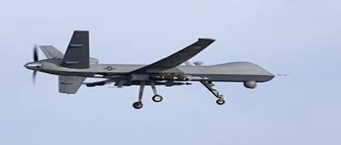By Bryan Hanger
 More than 150 people of faith came to Princeton, N.J., this past weekend to learn from legal, ethical, and theological experts about drones and discern together a unified religious response to the horrors of drone warfare. This Interfaith Conference on Drone Warfare drew participants from all over the country and from many religious backgrounds including Christian, Muslim, Jewish, and Sikh.
More than 150 people of faith came to Princeton, N.J., this past weekend to learn from legal, ethical, and theological experts about drones and discern together a unified religious response to the horrors of drone warfare. This Interfaith Conference on Drone Warfare drew participants from all over the country and from many religious backgrounds including Christian, Muslim, Jewish, and Sikh.
The conference grew out of work by the Interfaith Working Group on Drone Warfare in Washington, D.C., which is co-chaired by Nathan Hosler, director of the Church of the Brethren Office of Public Witness, and the ability of the Coalition for Peace Action to receive a grant to help fund the conference. The Office of Public Witness also served on the planning committee for the conference.
Speakers included well known Christian theologians George Hunsinger of Princeton Theological Seminary and Susan Thistlethwaite of Chicago Theological Seminary, professors David Cortright and Mary Ellen O’Connell from the Kroc Institute for International Peace Studies at Notre Dame, former US Congressman Rush Holt, and many others from Muslim, Jewish, human rights, international development, and constitutional law organizations.
Speakers talked about the many worrying aspects of drone warfare including: the basic facts about drones, the legal questions surrounding drone warfare, the strategic consequences of using drones, the moral and theological reasons people of faith care about drone warfare, what can be done to stop it, and how to positively build peace in communities that previously have been targeted.
Maryann Cusimano Love, a professor of international relations at Catholic University of America, urged on conference participants, saying, “The religious community has a track record of success on engaging on important moral issues–from landmines to debt relief, HIV funding to torture. Policy makers often underestimate religious actors, but we ought not to underestimate ourselves.”
In addition to the many informative and inspiring speakers, this conference provided the opportunity for sharing and organizing that had not previously happened at a national level. There has been much regional and local organizing, particularly at drone bases around the country, but this was the first time that religious leaders and other activists came together to consider how a national movement against drone warfare could be organized. This meant hashing out common ground between those subscribing to just war, just peace, and pacifist perspectives, while also providing space for those who might not fit so neatly into those categories.
The end result was a strong statement calling for an immediate halt to all drone strikes, acknowledgment of past strikes, accounting of victims, disclosure of legal justification for conducting such strikes, and greater overall transparency of the United States’ past actions and current processes. (The full statement from the conference soon will be made available online.)
Also in the document was a call for repeal of the 2001 Authorization for the Use of Military Force that has been cited as part of the legal justification for drone strikes, a call upon Congress to conduct a comprehensive independent study of the impact of lethal drones on targeted communities and drone operators, and a call upon leaders to take the nation off the path of unending war by instead turning toward the task of building peace by funding alternative measures.
What comes next will be up to the participants of the conference and the religious communities they go home to. During the final session, discussion turned to how participants will engage their religious communities and how organizations that already have made statements (the 2013 Church of the Brethren Annual Conference resolution is at www.brethren.org/ac/statements/2013resolutionagainstdronewarfare.html ) can collaborate and increase their advocacy. There was talk of creating a national organization to focus on drones specifically. A similar conference in 2006 about torture led to the creation of the National Religious Campaign Against Torture.
Mennonite Central Committee US Peace Education coordinator Titus Peachey closed out the conference reflecting on Luke 9:51 55. The disciples asked Jesus if he would like for them to command fire to come down from the heavens and consume the village of the Samaritans. Jesus rebuked them saying, “You do not know what manner of spirit you are of.” Peachey challenged the conference participants to reflect on what spirit we are of and how we are to resist the fire our own country shoots down upon others from the heavens using drones.
Regardless of the shape or form of this movement’s next steps, it is safe to say that the voice of the interfaith community of the United States will be speaking up loudly about the devastating effects of drone warfare.
— Bryan Hanger is advocacy assistant in the Church of the Brethren Office of Public Witness. Those who are working on the issue of drone warfare or who are interested in joining in the effort are requested to contact Nate Hosler, Director of the Office of Public Witness, at nhosler@brethren.org . Go to www.brethren.org/advocacy/actionalerts.html to sign up for Action Alerts from the Office of Public Witness.